NEW POLL: Working Class Voters Want Dems to Focus on Valuing Work vs. Overhauling Systems
Our new poll of 3,000 working class voters finds opportunities for Dems on the economy, if they stress the need to reward hard work, as Trump’s handling of the cost of living remains hugely unpopular.
We’re back this week with another update from the largest research effort to understand why working class voters are trending away from Democrats.
This week, we want to share some new polling data on how swing state working class voters perceive Democrats and Republicans – and what Democratic messaging could attract support for Democrats on a generic midterm ballot.
The poll of 3,000 working class voters was taken across 21 states from August 18-27. Overall, these self-identified working class voters supported President Trump by seven points in 2024, yet the poll found significant opportunities for Democrats in a generic ballot midterm matchup.
TOPLINES
Working class voters overwhelmingly disapprove of the job President Trump is doing on lowering the cost of living, even as they remain split evenly on his overall approval and favorability.
Working class voters prefer Democratic messaging focused on rewarding and valuing hard work vs. overhauling broken systems and criticizing the wealthy. This messaging helps improve Democrats’ standing among working class voters on the economy.
Democrats face dual challenges on economic and cultural issues and need to address both. Calling out politicians’ obsession with social issues helps attract more working class support.
HOW WORKING CLASS VOTERS PERCEIVE TRUMP – AND THE TRUMP ECONOMY
President Trump’s success winning working class voters in 2024 has been well-documented throughout our project. So it’s no surprise that the sample of voters in this poll supported Trump by seven points in 2024 and identify as Republican by six points. Despite that, Democrats are competitive in a generic ballot matchup, which suggests opportunity for next year’s midterms.
Trump’s favorability and approval rating among these voters remains even – but while many voters are still hopeful their economic circumstances will improve over the next year, they overwhelmingly disapprove of Trump’s performance on lowering the cost of living.
These findings show how important Democrats’ economic messaging will be over the next year, as they seek to win back congressional majorities in the midterms. People are hopeful, but Trump isn’t getting much benefit for that right now. Whether that holds is an open question. Across our focus groups, we’ve heard voters express sentiments like: Things are so bad now, they have to get better, or: I can’t imagine it getting any worse. It will be up to Democrats to convince these voters that they can be trusted to create economic improvements in working people’s lives.
To try to identify what Democrats should do to improve their own economic branding, we tested out different messages based on what we’ve heard across 40+ focus groups and asked working class voters what they wanted to see from Democrats.
WHAT SHOULD DEMOCRATS DO TO WIN OVER WORKING CLASS VOTERS ON THE ECONOMY?
One major takeaway from this polling is that Democrats’ messaging cannot just be focused on what Republicans (or even Democrats) are doing wrong. Democrats need to make a positive case for what defines them. Similarly, we’ve found that it’s time for Democrats to move on from trashing the stereotypes or caricatures of what people perceive the Democratic Party to be. Focusing on how bad the current Democratic Party is does nothing to communicate to voters what Democrats actually stand for.
Throughout this project, including our many focus groups across the country this year, we have heard working class voters say the Democratic Party doesn’t value working hard for a living and often vilifies success. Our polling confirms this – and proves that language on hard work and wanting people to be successful needs to be part of Democratic messaging going forward. In our forced-choice questions, this out-performed messaging that prioritized criticizing the wealthy and corporations.
We’re not saying Democrats should abandon populism or their commitment to fairness or accountability. But talking about bringing down costs for working people and ensuring corporations are paying their fair share performs better than a focus on attacking the wealthy. As we wrote in June, working class voters have repeatedly told us that they interpret Democrats’ attacks on wealth as punishing hard work and success, when they really want us to crack down on corruption and those who abuse the system to benefit themselves.
When Democrats talk about systemic change or lean on populist messaging, it is critical to focus on tangible actions that reduce people’s cost of living and make it easier for people who work hard to find success.
When it comes to these issues, bringing down health care costs remains Democrats’ most popular brand identity. But focusing on things like cutting taxes for middle and working class families, raising the minimum wage, capping prescription drug costs, cracking down on price gouging, and making sure corporations and billionaires are paying their fair share also draw support from working class voters and help improve their perception of Democrats on the economy.
WHAT ABOUT SOCIAL AND CULTURAL ISSUES?
Democrats face dual challenges on economic and cultural issues and need to address both. Throughout this project, we’ve heard that working class voters think Democrats are too far left and often prioritize liberal social issues over economic issues. Over the past year, trans issues have taken center stage – as Trump, during the campaign and after, has sought to use them as a wedge to attack Democrats, divide voters, and win. But this could just as well be said about immigration or crime.
What we saw in this poll is that working class voters prefer candidates who vocally argue we all – Democrats and Republicans – need to stop obsessing over these issues, instead of taking the liberal or conservative position on them.
One of the most persuasive messages for growing Democratic support among working class voters on the generic ballot, especially among Independents, was: Our country is facing major challenges. Politicians should be doing everything they can to get costs down, but they would rather obsess over issues like transgender kids than propose real solutions that improve people's lives. We need to figure out how to bring down costs and expand opportunities for young people, not stir up more controversy and division.
Some of the least effective messaging for working class voters centered on stressing compassion, trying to fact check GOP attacks, or attempting to turn the attacks on Republicans by accusing them of forcing gender checks for young girls. These messages play into what the polling above demonstrated was the wrong approach: to dive headfirst into either “side’s” position.
Many working class voters do have passionate views on the substance of these issues – and Democrats need to be mindful of that. But most working-class voters care more about focusing on other issues (like the cost of living) than getting transgender policies to align exactly with their beliefs. Clearly there is room to make progress by calling out the recent obsession in our politics over social and cultural issues and stressing the need to focus on economic challenges facing all Americans.



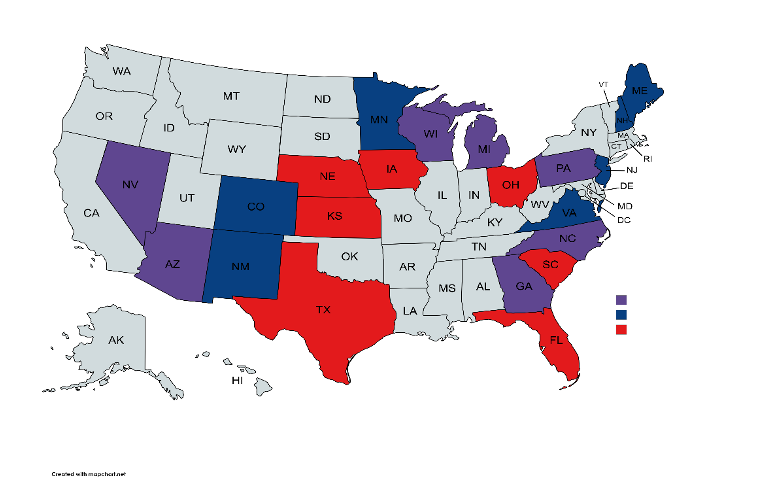
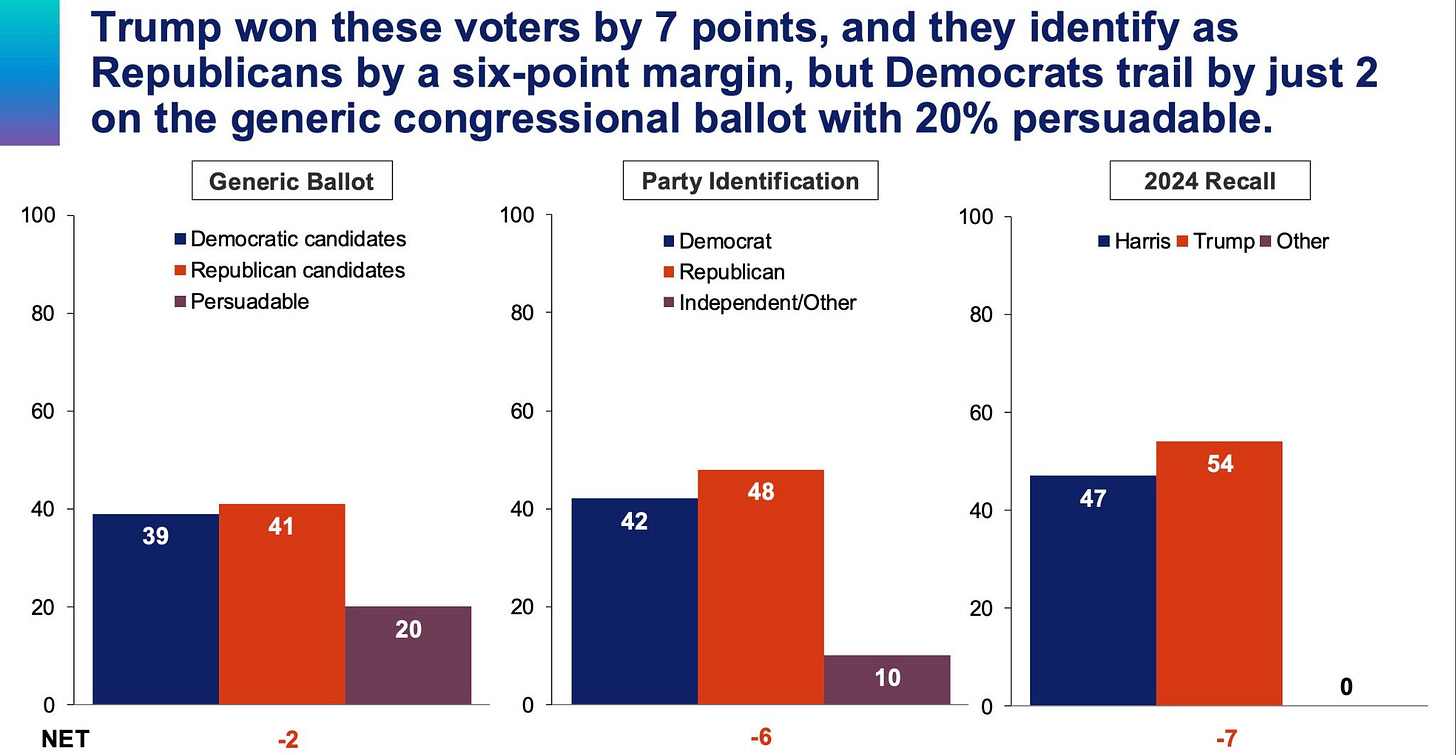
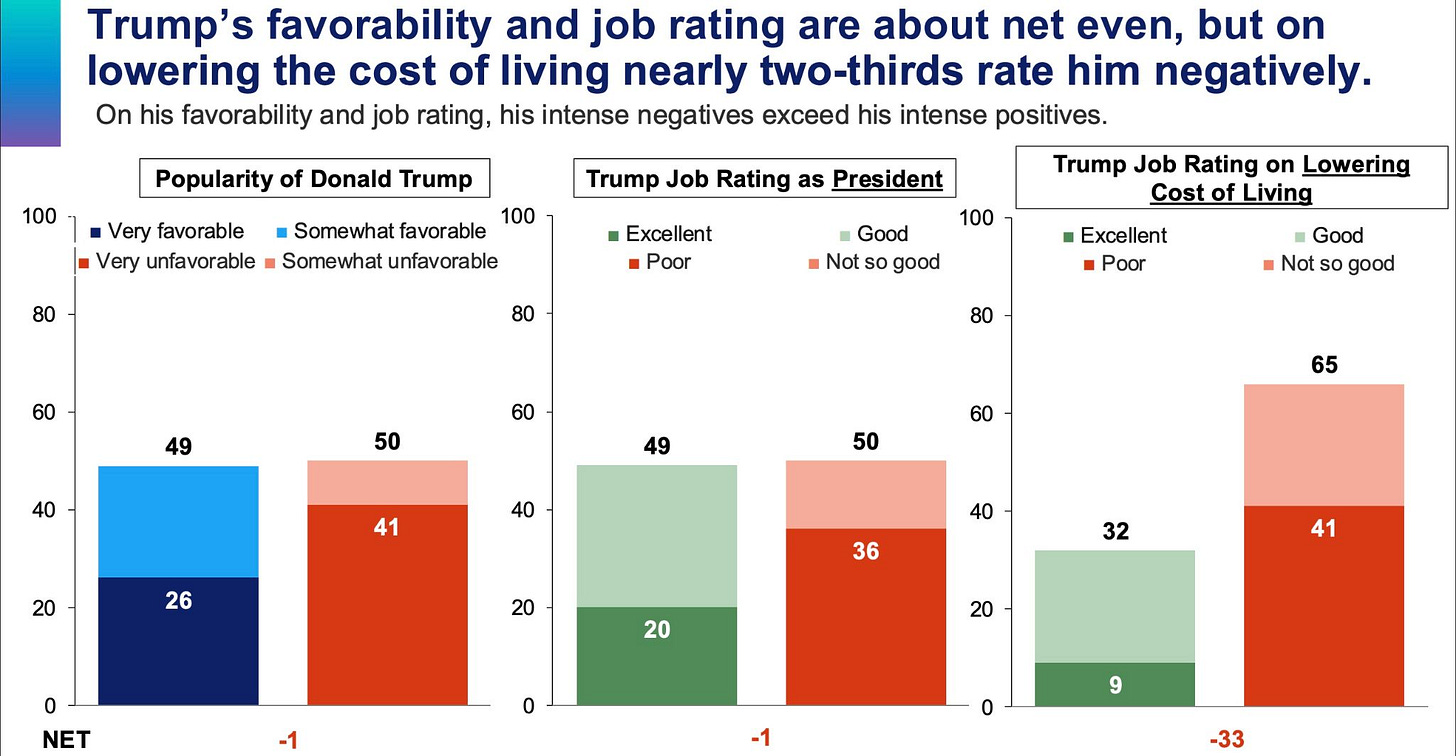
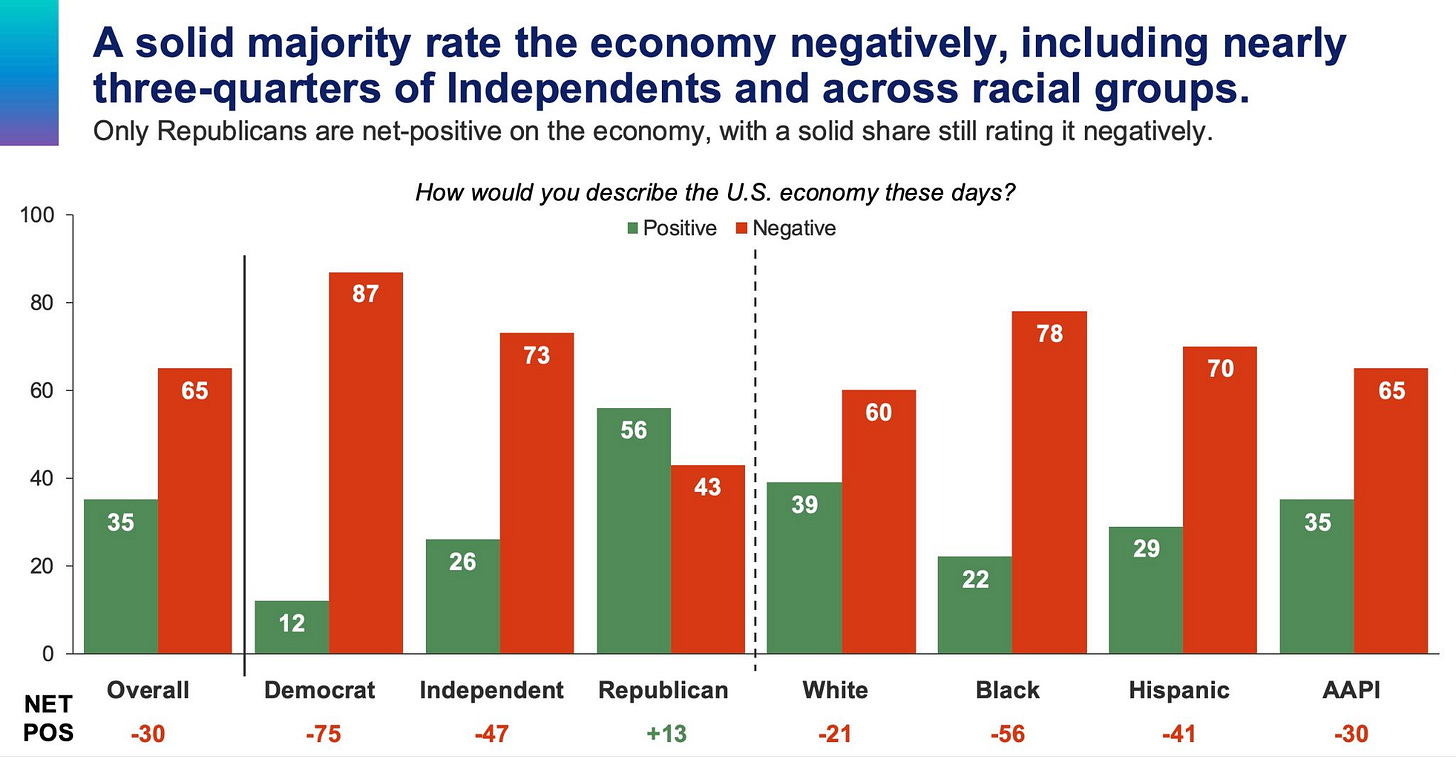
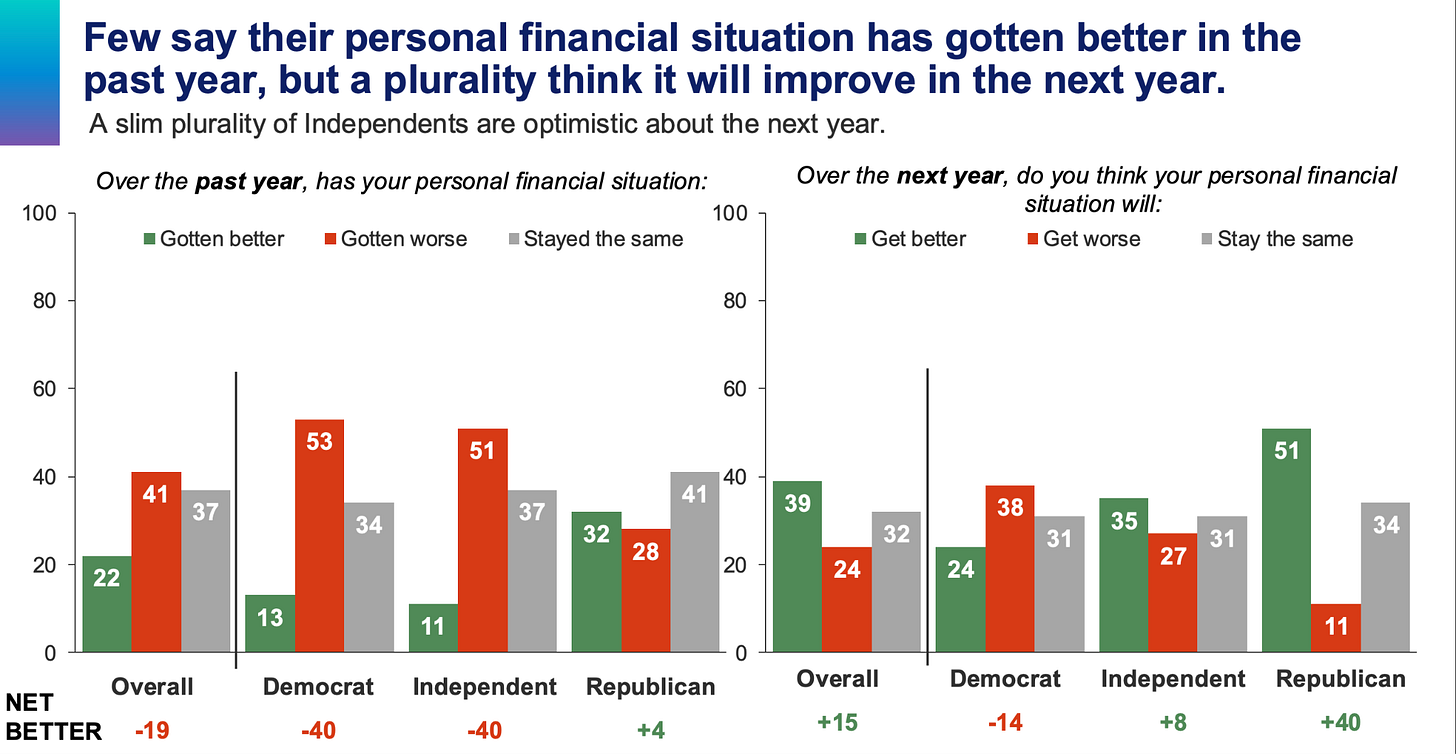
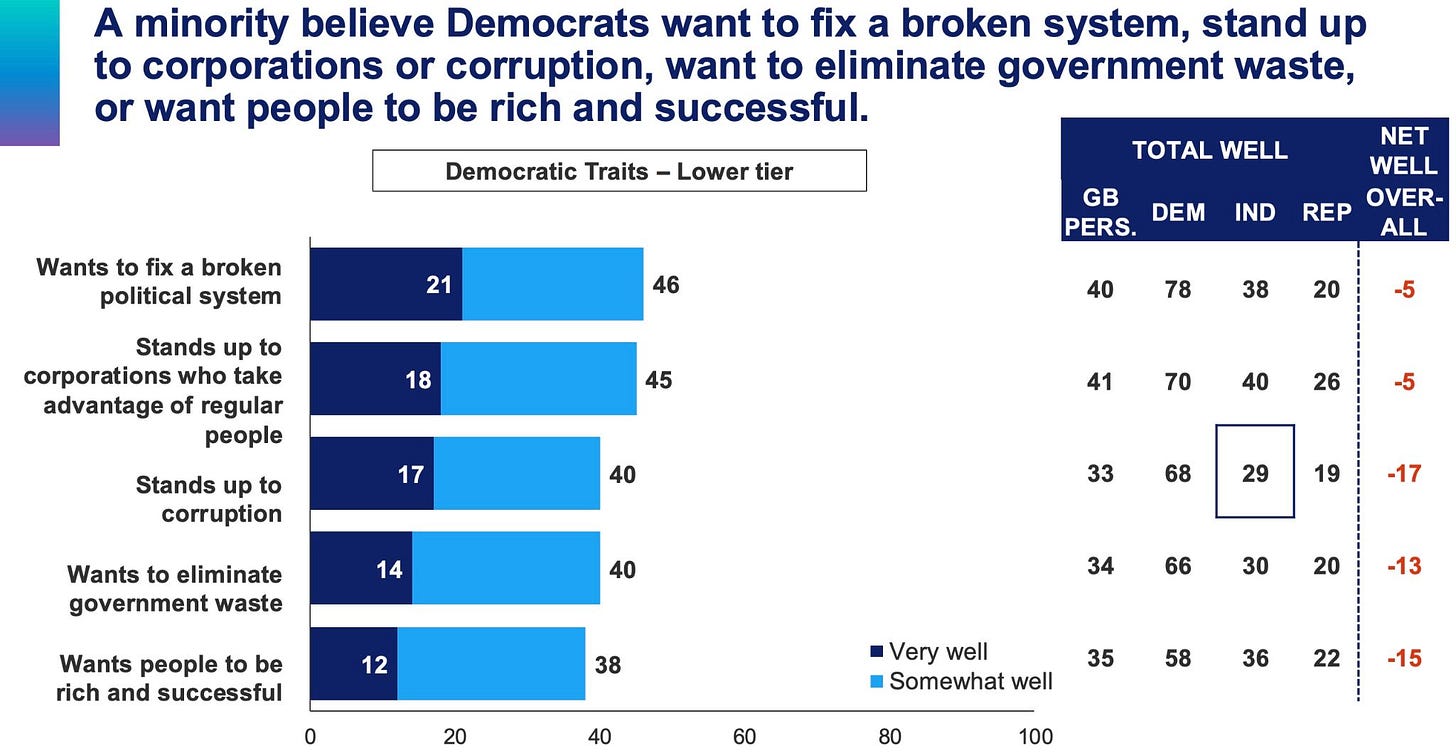
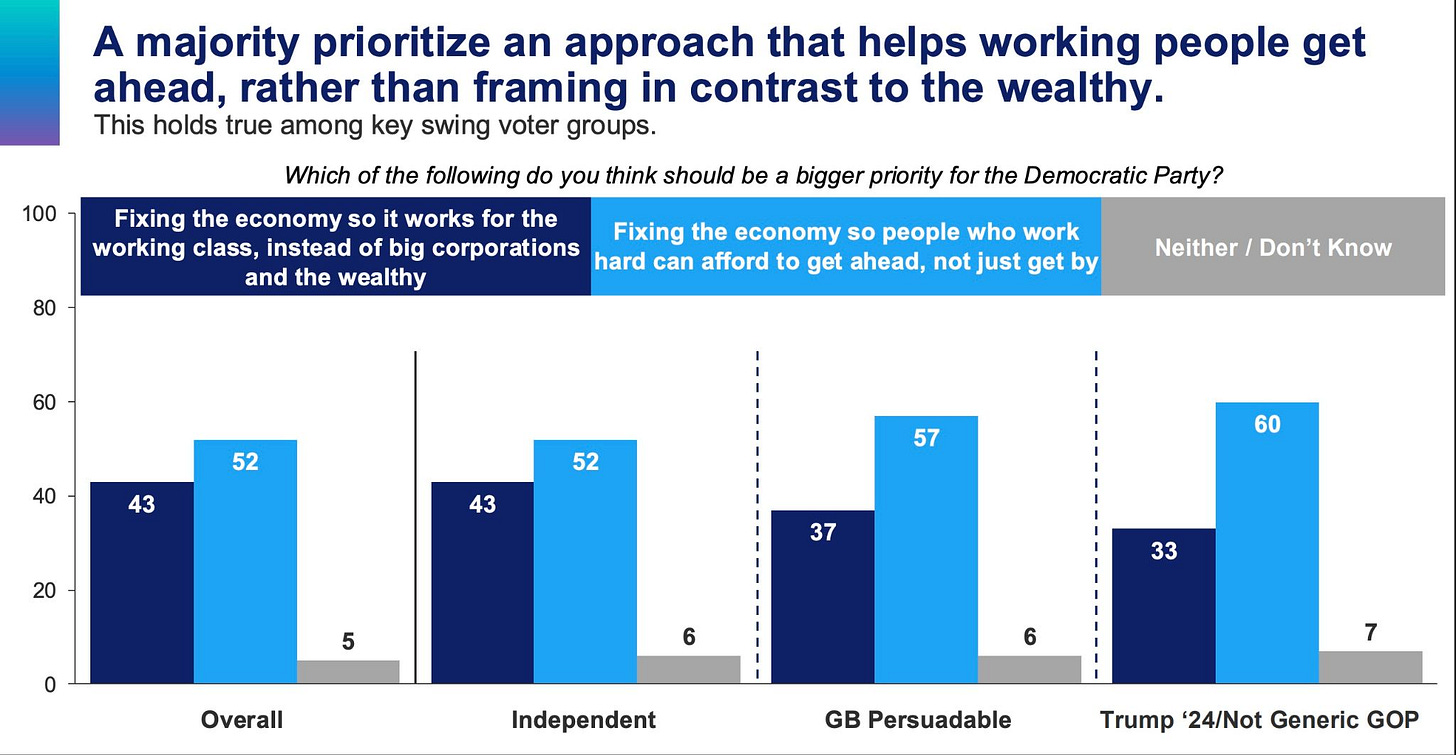
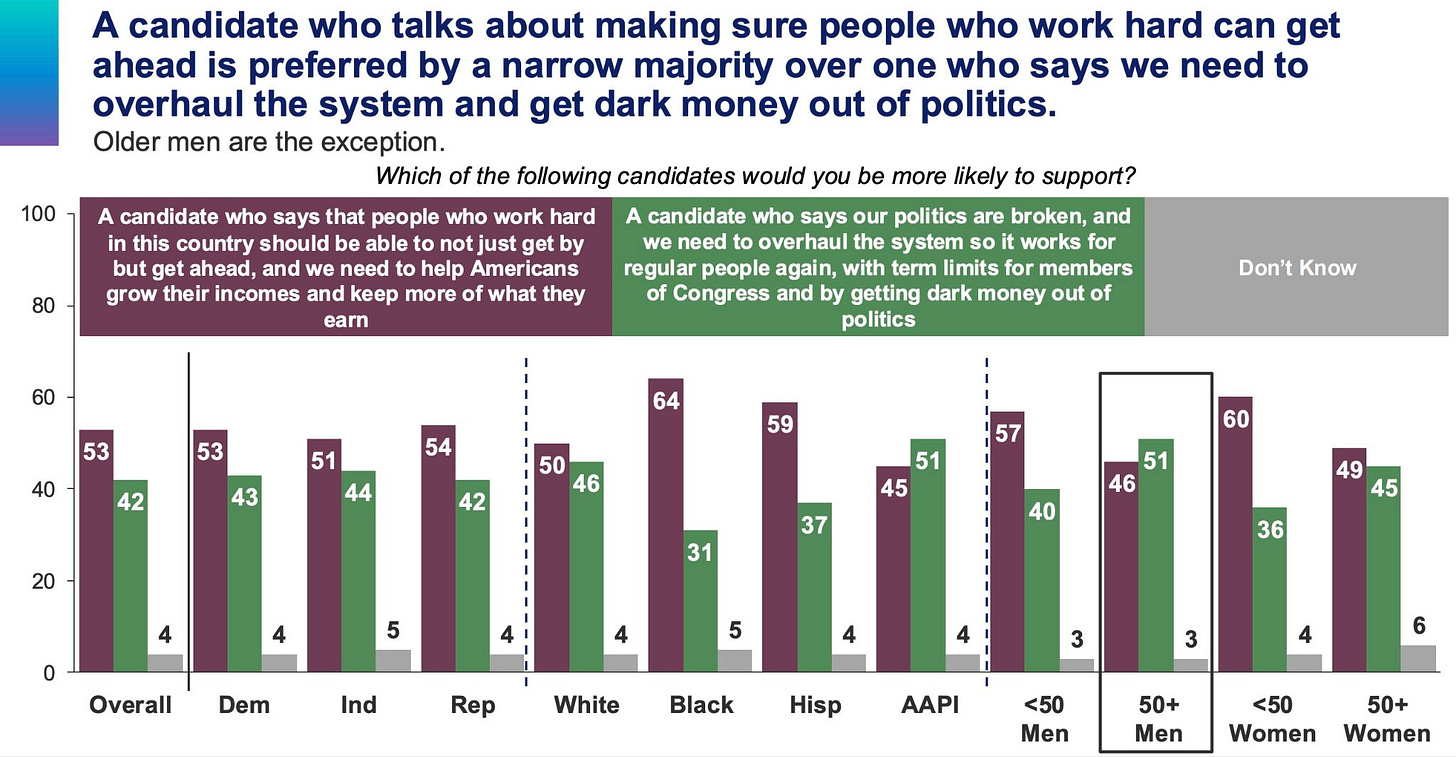
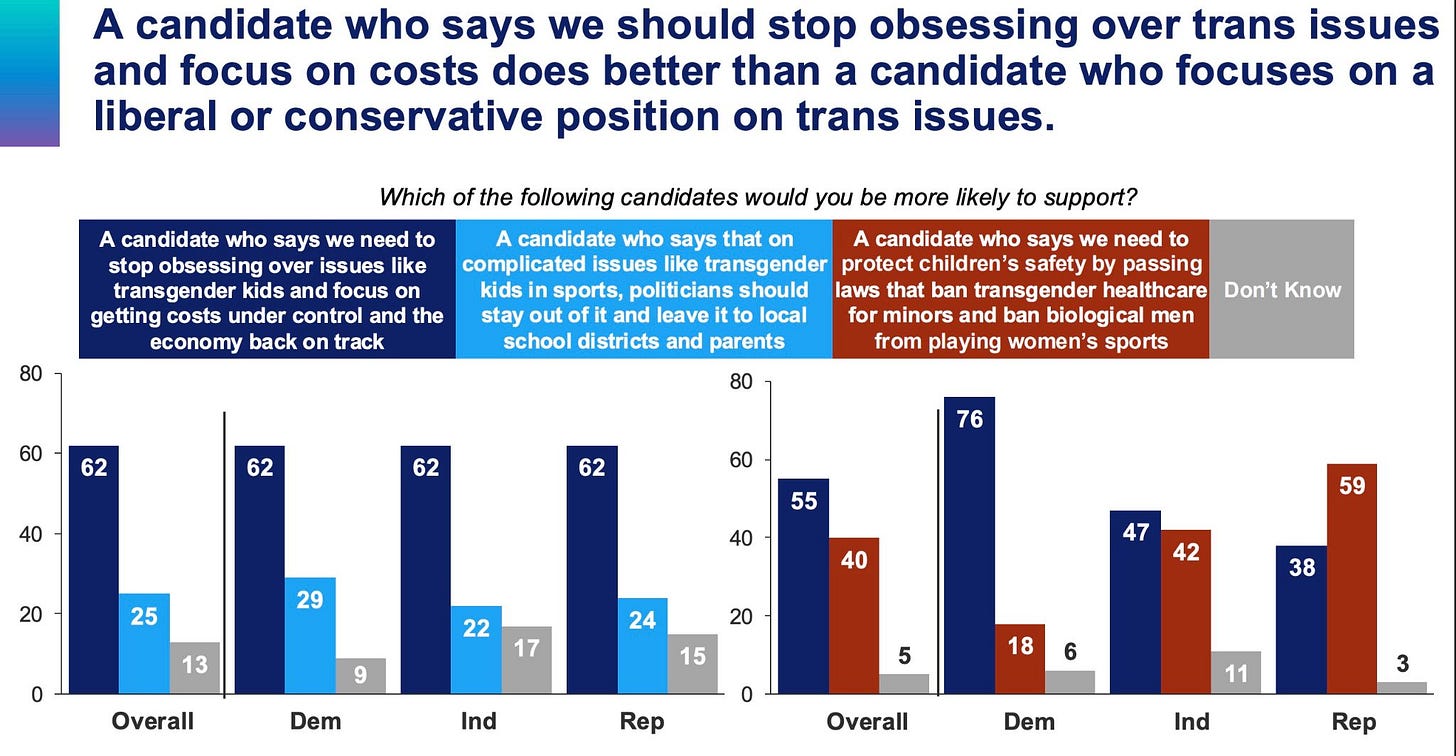
These results are not surprising to me at all. Working-class voters tend to be more pragmatic than college-educated voters.
They want a growing economy that includes their families, not economic populism (which has a very poor trac record of promoting economic growth). Economic populism generally fires up college-educated voters who largely already vote Democratic.
Why are these focused on polling Trump supporters. No offense, but you should be polling and working on supporting your actual voters and swing voters. Recommend following Anat Shankar Oscorio (she’s on Substack) and reading The Persuaders by Anand Giridharadas (also on Substack). It specifically calls out how republicans use messaging that their supporters and swing voters approve of and that democrats hate. We need to move toward that model. Trying to please everyone HAS GOTTEN DEMS NO WHERE and will not serve them going forward.